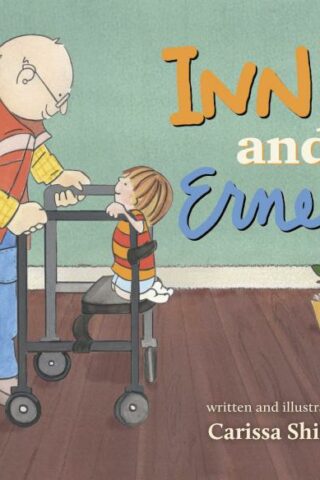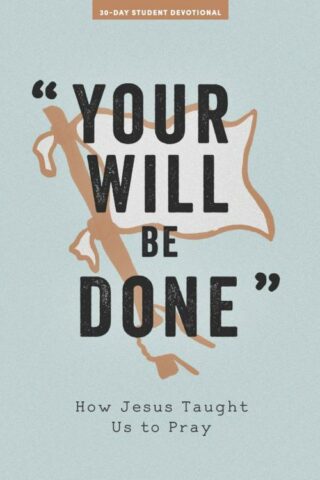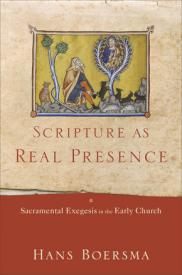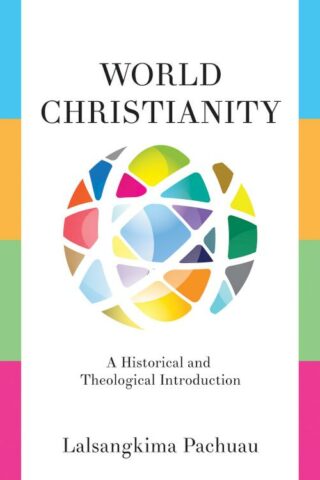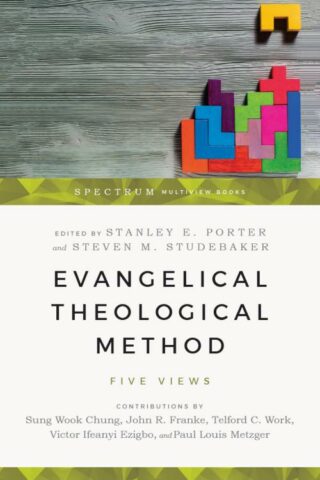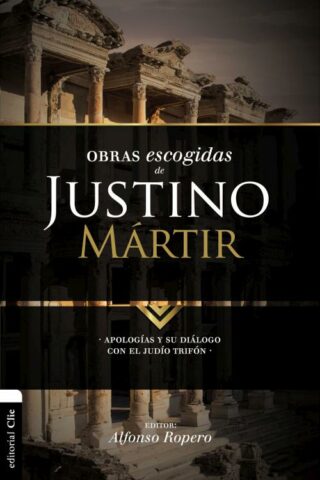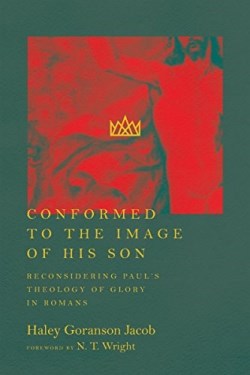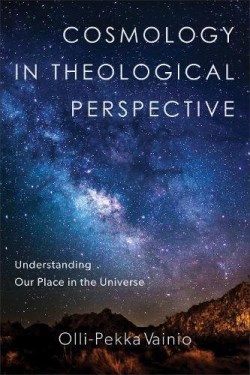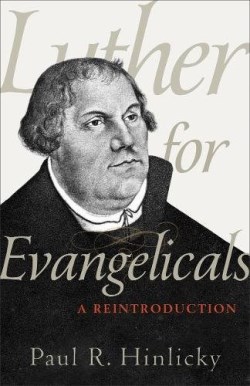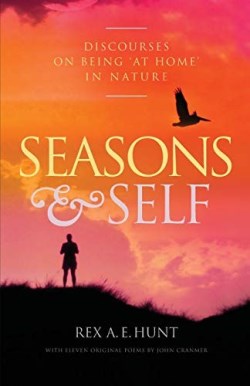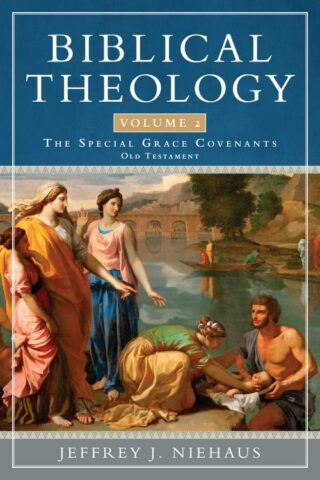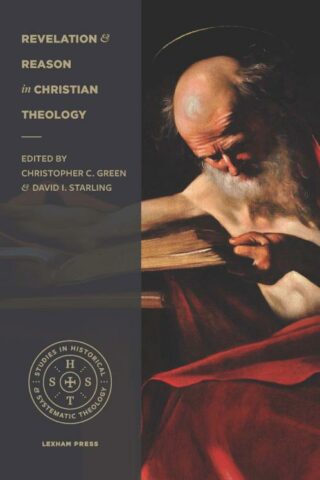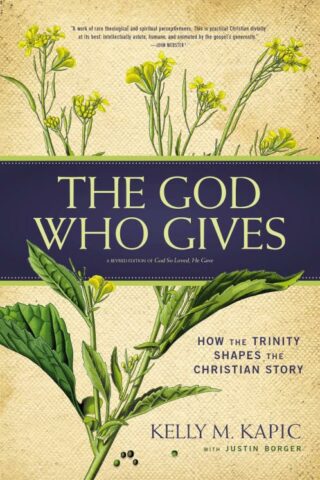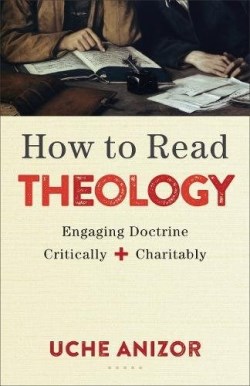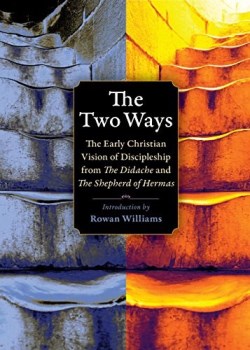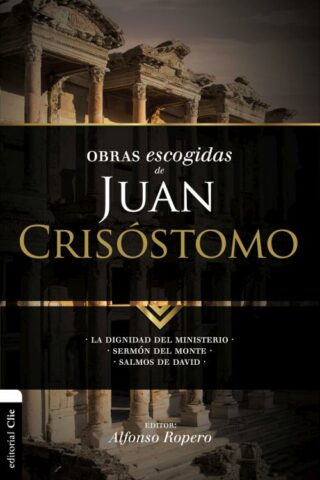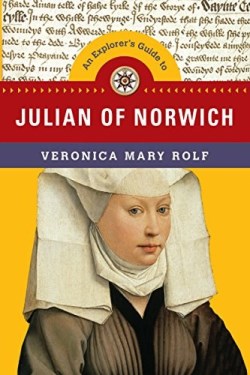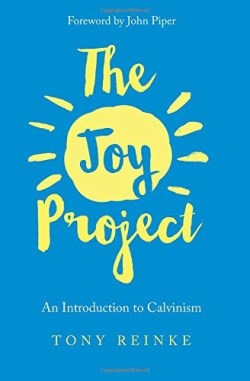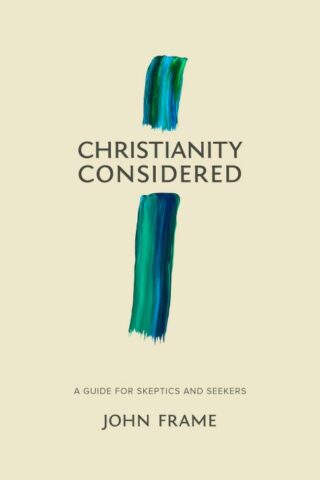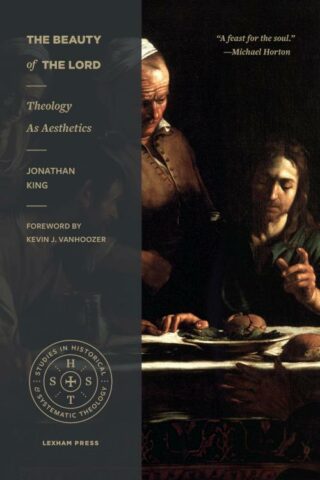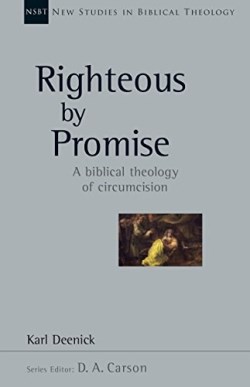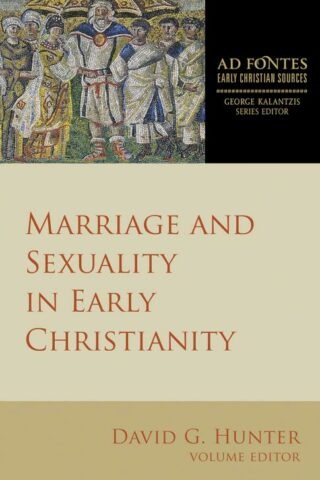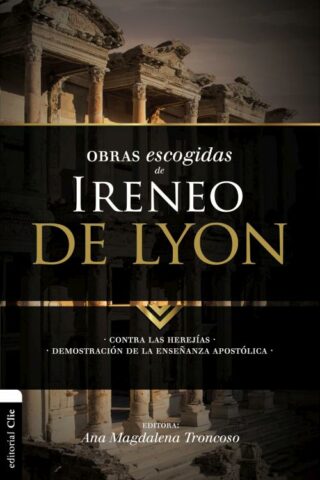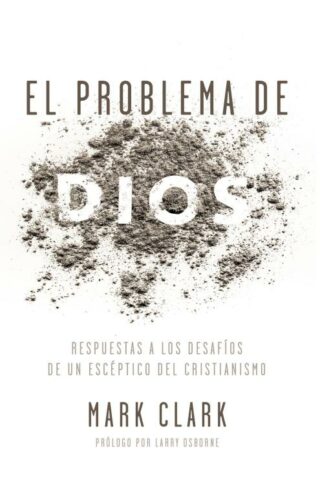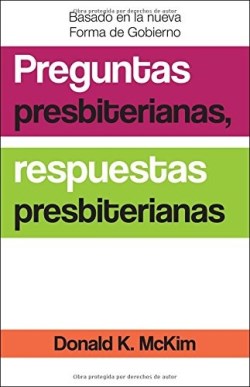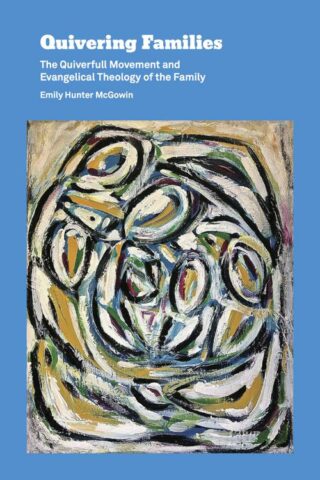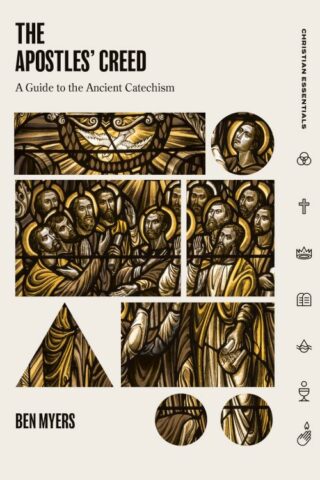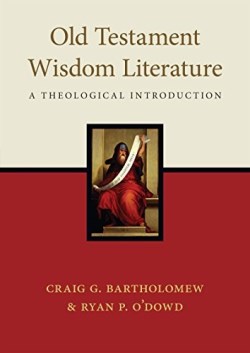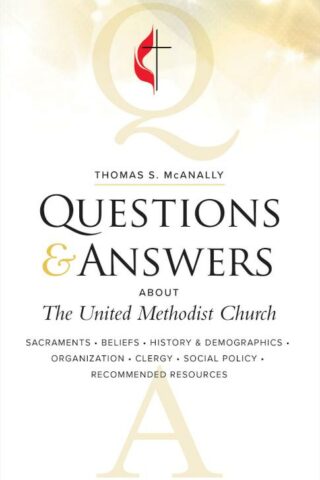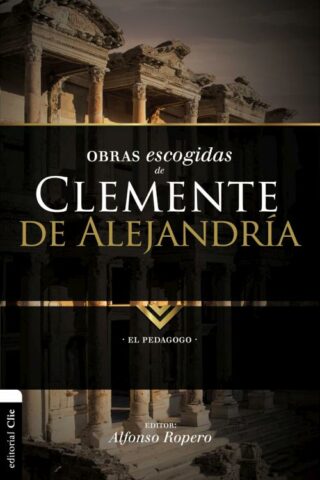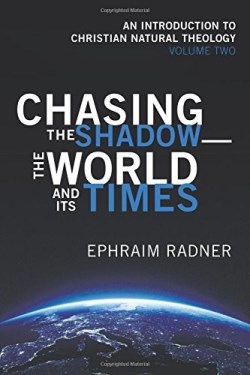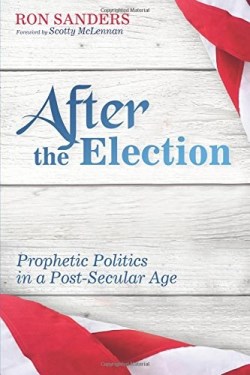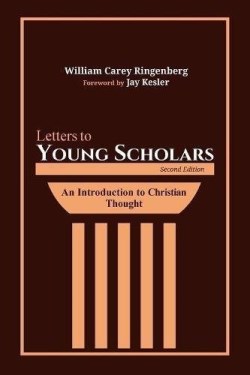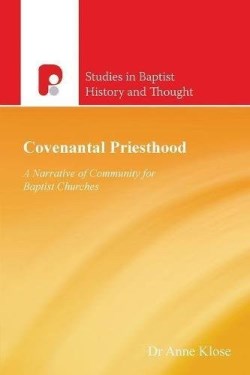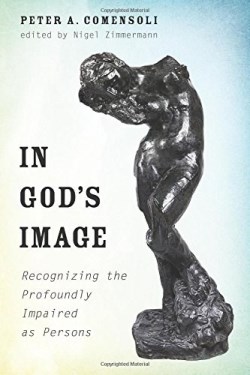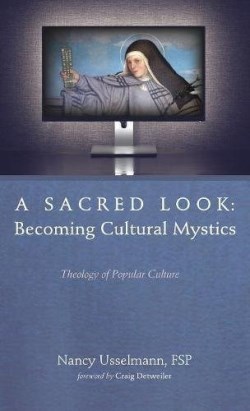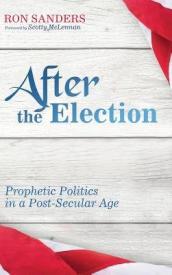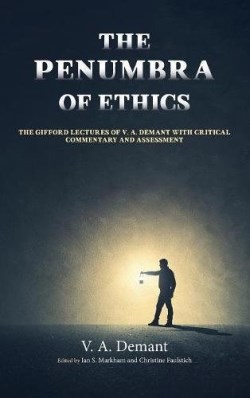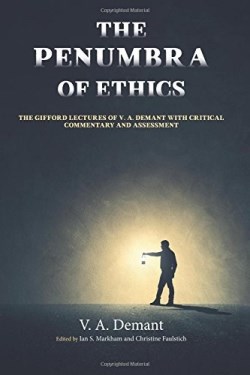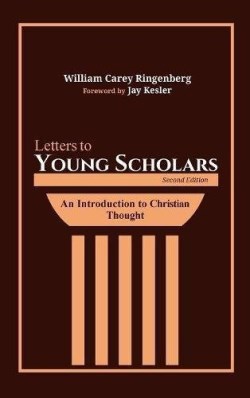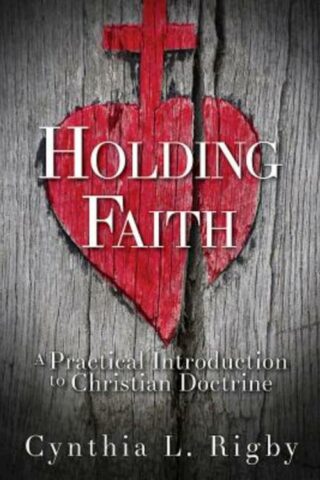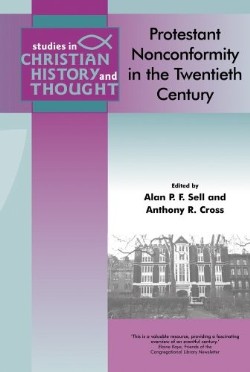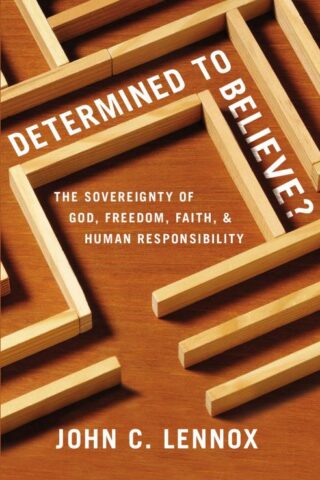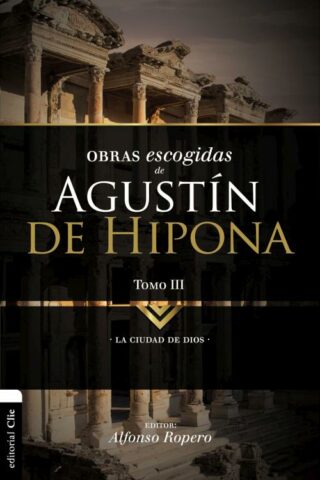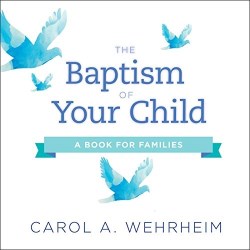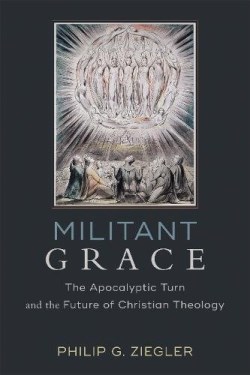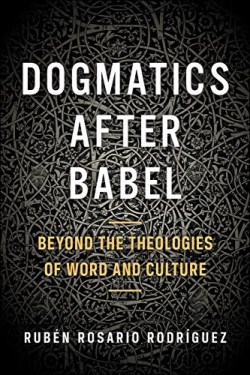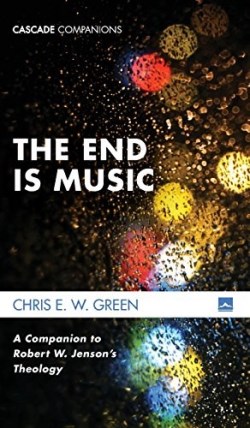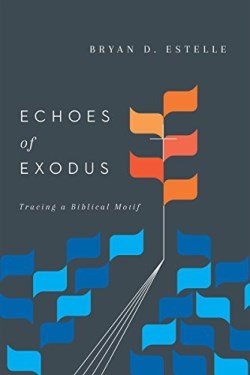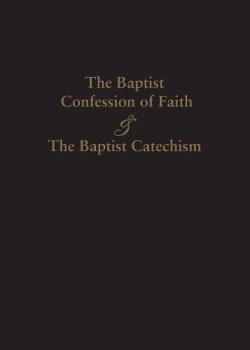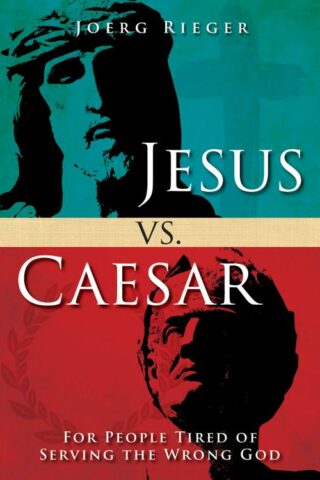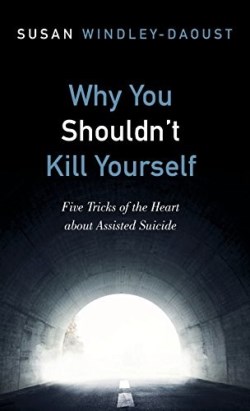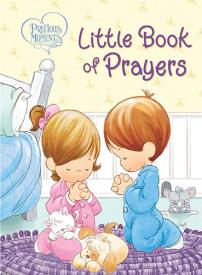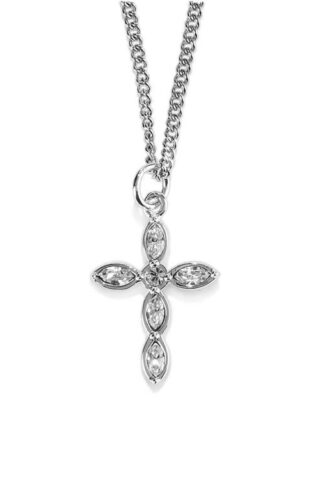Theology (Exegetical Historical Practical etc.)
Showing 651–700 of 4073 resultsSorted by latest
-
Scripture As Real Presence
$43.52This work argues that the heart of patristic exegesis is the attempt to find the sacramental reality (real presence) of Christ in the Old Testament Scriptures. Leading theologian Hans Boersma discusses numerous sermons and commentaries of the church fathers to show how they regarded Christ as the treasure hidden in the field of the Old Testament and explains that the church today can and should retrieve the sacramental reading of the early church. Combining detailed scholarly insight with clear, compelling prose, this book makes a unique contribution to contemporary interest in theological interpretation.
Add to cartin stock within 3-5 days of online purchase
-
World Christianity : A Historical And Theological Introduction
$37.99Christianity is vibrant and growing in the non-western “majority” world and Christianity is changing as a result. Pachuau surveys the current trending approaches to recognizing and investigating “world Christianity” and explores the salient features of the demographic changes that mark a measurable shift in the center of gravity from the northwest part of the globe to the southern continents. This shift is not just geographical. World Christianity is ultimately about the changing and diversifying character of Christianity and a renewed recognition of the dynamic universality of Christian faith itself: Christianity is a shared religion in that people of different cultures and societies make it their own while being transformed by it. Christanity is translatable and adaptable to all cultures while challenging each with its transformative power. Pachuau also charts the theological reestablishment of the missionary enterprise founded on understandings of God’s mission in the world (mission Dei), a mission of cross-cultural gospel diffusion for missionary advocates in the majority world but one of near neighbor missional engagement for the contagious Charismatic Christianity of the majority world. This book is both a descriptive study and a thoughtful analysis of world Christianity’s demographics, life, representation, and thought. The book an also gives an account of the historical emergence of World Christianity and its theological characteristics using a methodology that stresses the productive tension between the universal and particular in understanding a fundamentally adaptable Christian faith.
Add to cartin stock within 3-5 days of online purchase
-
Evangelical Theological Method
$28.99Method In Systematic Theology: An Introduction-Stanley E. Porter And Steven M. Studebaker
Codifying God’s Word: Bible Doctrines/Conservative Theology-Sung Wook Chung
Living God’s Love: Missional Theology-John R. Franke
Framers And Painters: Interdisciplinary Theology-Telford C. Work
God In Human Context: Reflection On Theology’s Contextuality And Contextual Theology-Victor Ifeanyi Ezigbo
Confessing The Faith: A Trinitarian Method In Dogmatic Theology-Paul Louis MetzgerResponse To Other Contributors-Sung Wook Chung
Response To Other Contributors-John R. Franke
Response To Other Contributors-Telford C. Work
Response To Other Contributors-Victor Ifeanyi Ezigbo
Response To Other Contributors-Paul Louis MetzgerWhat Have We Learned Regarding Theological Method, And Where Do We Go From Here? Tentative Conclusions-Stanley E. Porter And Steven M. Studebaker
ContributorsAdditional Info
How should one approach the task of theology?The question of methodology is increasingly one of interest among theologians, who recognize that the very manner in which we approach theology informs both the questions we ask and the conclusions we reach. This volume in IVP’s Spectrum Multiview series brings together five evangelical theologians with distinctly different approaches to the theological task: Sung Wook ChungJohn R. FrankeTelford C. WorkVictor Ifeanyi EzigboPaul Louis MetzgerAfter presenting their own approach-which include appeals to Scripture, context, missions, interdisciplinary studies, and dogmatics-they respond to each of the other views. Emerging from this theological conversation is an awareness of our methodological commitments and the benefits that each can bring to the theological task.Add to cartin stock within 3-5 days of online purchase
-
Obras Escogidas De Justino Mar – (Spanish)
$17.99Las Actas del Martirio de Justino constituyen uno de los mas valiosos documentos de la Iglesia Primitiva. Sus escritos genuinos, ademas de constituir una fuente documental preciosa para conocer la vida de la Iglesia cristiana en el siglo II y la apologetica propia de ese periodo, ofrecen la posibilidad de conocer y estudiar los primeros credos cristianos.
Justino se consagro a la filosofia calificandola como el mayor de los bienes. Estudio con los estoicos, aristotelicos, pitagoricos y platonicos. Puso todos sus conocimientos filosoficos al servicio de la fe, abriendo en Roma la primera escuela de filosofia cristiana que se conoce; dedicada a exponer la verdad evangelica segun las Escrituras y conforme al testimonio de la razon.
Add to cartin stock within 3-5 days of online purchase
-
Conformed To The Image Of His Son
$38.99Foreword By N. T. Wright
Preface1. Introduction
1.1 Getting To This Point
1.2 A Few Notes On Methodology
1.3 Outline And Agenda For Each Section
AbbreviationsPart I: The Hope Of Glory In Romans 5-8
2. Glory And Glorification In Jewish Literature
2.1 A Discussion Of Semiotics
2.2 Glory And Glorification In The LXX
2.3 Glory And Glorification In Apocalyptic Literature
2.4 Conclusion3. Humanity’s Glory And Glorification In Romans
3.1 Humanity’s Glory And Glorification In Romans: Current Approaches
3.2 Humanity’s Glory And Glorification In Romans: Considerations
3.3 Paul’s Anthropological “Narrative Of Glory” In Romans
3.4 Conclusion4. Participation In Christ’s Glory
4.1 Participation As A Foundational Motif In Pauline Literature
4.2 Participation Elsewhere
4.3 ConclusionPart II: Romans 8:29
5. Image Of The Son
5.1 Son Of God Backgrounds
5.2 Christ As Messiah-A Presupposition
5.3 Son Of God As The Davidic Messiah
5.4 Son Of God As The New Adam
5.5 Conclusion6. Participation In The Firstborn Son’s Glory
6.1 Adoption Into God’s Eschatological Family: The Basis Of Conformity
6.2 Participation In The Son’s Inheritance And Glory In Romans 8:17
6.3 A Reglorified Humanity In Romans 8:30
6.4 Conclusion7. Purposed For Conformity
7.1 God’s Eternal Decree: Called With A Purpose: Romans 8:28-30
7.2 Called With A Present Purpose: Romans 8:17-30
7.3 Conclusion8. Conclusion
8.1 Alternative Proposals
8.2 Chapter Conclusions
8.3 Summary Of The ArgumentBibliography
Name Index
Subject Index
Scripture IndexAdditional Info
With its soaring affirmations and profound statements of salvation in Christ, Romans 8 is a high point in Pauline theology. But what does Paul mean when in 8:29 he speaks of being “conformed to the image of his Son”?Remarkably, there has been little scholarly attention awarded to this Pauline statement of the goal of salvation. And yet in Christian piety, preaching, and theology, this is a treasured phrase. Surprisingly, its meaning has been variously and ambiguously expressed. Is it a moral or spiritual or sanctifying conformity to Christ, or to his suffering, or does it point to an eschatological transformation into radiant glory?In Conformed to the Image of His Son, Haley Goranson Jacob probes and reopens a text perhaps too familiar and a meaning too often assumed. If conformity to the image of the Son is the goal of salvation, a proper understanding is paramount. Jacob points out that the key lies in the meaning of “glory” in Paul’s biblical-theological perspective and in how he uses the language of glory in Romans. For this investigation of glory alone, her study would be valuable for the fresh understanding she brings to Paul’s narrative of glory. But in introducing a new and compelling reading of Romans 8:29, this is a study that makes a strong bid to reorient our understanding of Paul’s classic statement of the goal of salvation.Add to cartin stock within 3-5 days of online purchase
-
Cosmology In Theological Perspective
$32.94A leading expert in science and theology introduces the topic of cosmology from a “state of the question” perspective, showing what the stakes are for religion and theology in the rise of modern science.
Add to cartin stock within 3-5 days of online purchase
-
Seasons And Self
$44.98Seasons and Self is a courageous exploration into religious naturalism as well as contemporary critical biblical studies by one of Australia’s leading progressives, Rex A E Hunt. A self-professed religious naturalist, progressive liturgist, and social ecologist, he belongs squarely within a post-liberal/ ‘progressive’ orientation.
Add to cartin stock within 3-5 days of online purchase
-
Biblical Theology Volume 2
$34.99The second of three volumes, this study explores the Old Testament special grace covenants: the Abrahamic, Mosaic, and Davidic. The third volume examines the final and culminating special grace covenant: the New covenant. The three volumes taken together present the covenant as an expression of God’s nature, and show a paradigm of activity by which God works in covenantal relations, first to create the world and then, through a redemptive program after the fall, to redeem what was lost. The proposed paradigm, by which all the divine-human covenants are expressed and understood, is a new and, it is hoped, helpful way of portraying God’s covenant making dynamic, and it also thereby illustrates the divine consistency. The work also develops further the idea that all divine-human covenants are both unconditional and conditional, in contradistinction to prevailing terminology and understanding of the covenants as either conditional or unconditional, or unilateral or bilateral. Ancillary to the discussion of the covenants is a fresh exploration and demonstration of covenant making and covenant sustaining terminology.
Add to cartin stock within 3-5 days of online purchase
-
Revelation And Reason In Christian Theology
$23.99Do revelation and reason contradict?
Throughout the church’s history Christians have been tempted to make revelation and reason mutually exclusive. But both are essential to a true understanding of the faith.
The inaugural Theology Connect conference–held in Sydney in July 2016–was dedicated to surveying the intersection of revelation and reason. In Revelation and Reason in Christian Theology Christopher C. Green and David I. Starling draw together the fruit of this conference to provoke sustained, deep reflection on this relationship. The essays–filtered through epistemological, biblical, historical, and dogmatic lenses–critically and constructively contribute to this important and developing aspect of theology.
Each essayist approaches revelation and reason according to the psalmist’s words: “In your light we see light” (Ps 36:9). The light of faith does not obscure truth; rather, it enables us to see truth.
Add to cartin stock within 3-5 days of online purchase
-
God Who Gives
$22.99Many Christians wonder what the Christian life is all about. They hear about “grace” but struggle to rightly understand it, much less live it. They are taught about God, but their vision of him does not always reflect the full biblical portrait of the Father, Son, and Holy Spirit. When this happens Christians struggle to know the ways of God and how to joyfully participate in his work.
A Theology of Life in the Son, Spirit, and Kingdom provides a compelling vision of Christian faith and life, helping readers discover the uniqueness of the gospel – that God’s kingdom comes not by taking, but by giving – God gives Himself! We are invited into the fullness of life that can only come through the gift of God’s divine generosity.
Taking readers through the grand biblical narrative of creation, fall, redemption, and kingdom author Kelly M. Kapic helps us see our story in and through the story of Scripture. He shows that everything belongs to God, and yet because of our turning and taking from him we experience a kind of suffocating bondage to sin. So how does God reclaim us? God gives again. The God who gave in creation restores by recreating us through his Son and by his Spirit. The kingdom of God is an overflowing measure of divine generosity that we are invited to participate in.
A Theology of Life in the Son, Spirit, and Kingdom calls readers to discover that the whole Christian story is founded upon the Triune God’s self-giving and our belonging to God. Fully embracing this truth changes how we view God, ourselves, and the world. Living in God’s gifts, we are freed to give ourselves and truly experience life.
Add to cartin stock within 3-5 days of online purchase
-
2 Ways : The Early Christian Vision Of Discipleship From The Didache And Th
$8.00How did earliest Christians receive and understand the teaching of Jesus and the apostles? These writings, among the earliest used in training new disciples, show a clear, vibrant, practical faith concerned with all aspects of discipleship in daily life–vocation, morality, family life, social justice, the sacraments, prophesy, citizenship, and leadership.
For the most part, these writings have remained buried in academia, analyzed by scholars but seldom used for building up the church community. Now, at a time when Christians of every persuasion are seeking clarity by returning to the roots of their faith, these simple, direct teachings shed light on what it means to be a follower of Christ in any time or place.
The Didache, an anonymous work composed in the late first century AD, was lost for centuries before being rediscovered in 1873. The Shepherd was written by a former slave named Hermas in the second century AD or possibly even earlier.
Add to cartin stock within 3-5 days of online purchase
-
Obras Escogidas De Juan Crisos – (Spanish)
$17.99Juan Crisostomo trata un tema polemico y espinoso: el llamamiento pastoral, para el cual -dice- muy pocos estan calificados. Crisostomo describe la Iglesia siguiendo con fidelidad absoluta a Pablo, pero llevandola a sus consecuencias mas pragmaticas: como un organismo viviente, del cual Cristo es la cabeza y los cristianos son los miembros.
Juan de Antioquia es mas conocido por su apodo Crisostomo. La lectura de sus escritos pone de manifiesto una trascendencia de profundo significado para el predicador actual. Desarrollo en la capital del Imperio una ardua batalla contra el fasto y el lujo, ademas de una intensa labor social y trato de impulsar una profunda reforma del clero.
Add to cartin stock within 3-5 days of online purchase
-
Explorers Guide To Julian Of Norwich
$22.99“All shall be well, and all shall be well, and all manner of thing shall be well.”
Julian of Norwich’s Revelations of Divine Love is truly an amazing work: an example of Christian mysticism, a unique contribution to Christian theology, the first book in English known to have been written by a woman.
But it can also be a daunting work. Veronica Mary Rolf, who has been studying Julian’s text for decades, serves as a guide for readers willing to take up and read Revelations of Divine Love by setting it in its fourteenth-century context and illuminating our understanding of this enduring work and its claim that “all shall be well.”
Add to cartin stock within 3-5 days of online purchase
-
Joy Project : An Introduction To Calvinism With Study Guide (Expanded)
$11.99True happiness is not found. It finds you.
We think of our chase for joy as a fundamental right-and it’s no surprise. By nature we are pleasure-seekers, though chronically unsuccessful at finding the type of joy that will endure for more than a passing moment.
But what if long-lasting joy isn’t found at all? What if the deepest and most durable happiness breaks into our lives, overcomes our boredom, and ultimately finds us? What if true joy is out of our reach, but reaches for us?
(This updated edition now includes a Study Guide for each chapter.)
Add to cartin stock within 3-5 days of online purchase
-
Christianity Considered : A Guide For Skeptics And Seekers
$16.99Christianity is more than a religion: it is also a complex intellectual tradition. Christians and non-Christians who want to understand the world as it is today have to understand Christianity, too.
Christianity makes objective claims, but also presents a new way of thinking about the world. In A Guide to Christianity for Skeptics and Seekers, renowned theologian Dr. John Frame introduces the reader to the Christian religion and its unique intellectual framework, describing the key pillars of Christian thought and how these shape the Christian worldview.
Covering a range of topics, from the resurrection to the Christian posture toward politics, A Guide to Christianity for Skeptics and Seekers is a valuable guide to understanding the Christian faith as an intellectual tradition.
Useful for both the Christian reader looking for a better understanding of the faith and the skeptical reader who seeks to understand the intellectual tradition that has done much to shape the modern world.
Add to cartin stock within 3-5 days of online purchase
-
Beauty Of The Lord
$34.99Why is God’s beauty often absent from our theology?
Rarely do theologians take up the theme of God’s beauty–even more rarely do they consider how God’s beauty should shape the task of theology itself. But the psalmist says that the heart of the believer’s desire is to behold the beauty of the Lord.
In The Beauty of the Lord Jonathan King restores aesthetics as not merely a valid lens for theological reflection, but an essential one. Jesus, our incarnate Redeemer, displays the Triune God’s beauty in his actions and person, from creation to final consummation. How can and should theology better reflect this unveiled beauty?
The Beauty of the Lord is a renewal of a truly aesthetic theology and a properly theological aesthetics.
Add to cartin stock within 3-5 days of online purchase
-
Righteous By Promise
$27.99Given the foundational importance of circumcision in the Old Testament and its prevalence in numerous debates in the New Testament, it is surprising that so little detailed work has been done on establishing a biblical theology of circumcision. This lack is even more surprising given that circumcision forms the background for some of the most hotly contested writings of the apostle Paul. The situation is complicated by the fact that the biblical material on circumcision seems to present often quite different and even apparently contradictory pictures of what circumcision means.
Two of the key biblical concepts which are closely linked to circumcision in the debates carried on in Paul’s letters and the early church are righteousness and faith. In this NSBT volume, Karl Deenick shows that these two concepts are central to both the New Testament understanding and the developing Old Testament understanding of circumcision. They are held together by the unfolding promise of a blameless “seed of Abraham”, Jesus Christ, through whose sacrifice the promised righteousness will finally come-a righteousness which will be enjoyed by those whose hearts are circumcised, who trust in God’s promise.
Addressing key issues in biblical theology, the works comprising New Studies in Biblical Theology are creative attempts to help Christians better understand their Bibles. The NSBT series is edited by D. A. Carson, aiming to simultaneously instruct and to edify, to interact with current scholarship and to point the way ahead.
Add to cartin stock within 3-5 days of online purchase
-
Marriage And Sexuality In Early Christianity
$50.00Marriage and Sexuality in Early Christianity is part of Ad Fontes: Early Christian Sources, a series designed to present ancient Christian texts essential to an understanding of Christian theology, ecclesiology, and practice. The books in the series make the wealth of early Christian thought available to new generations of students of theology and provide a valuable resource for the church. Developed in light of recent patristic scholarship, the volumes provide a representative sampling of theological contributions from both East and West.The series provides volumes that are relevant for a variety of courses: from introduction to theology to classes on doctrine and the development of Christian thought. The goal of each volume is not to be exhaustive but rather to be representative enough to denote for a nonspecialist audience the multivalent character of early Christian thought, allowing readers to see how and why early Christian doctrine and practice developed the way it did.
Add to cartin stock within 3-5 days of online purchase
-
Obras Escogidas De Ireneo De L – (Spanish)
$24.99Ireneo edifica sus argumentos para establecer la verdadera doctrina cristiana sobre la roca del verdadero testimonio abierto de Cristo, comunicado por sus apostoles directos e inmediatos a traves de sus escritos.
Add to cartin stock within 3-5 days of online purchase
-
Problema De Dios – (Spanish)
$15.99Este libro fue escrito por un esceptico que se convirtio en cristiano y luego en pastor, todo mientras exploraba las respuestas a las interrogantes mas dificiles contra el cristianismo. Mark Clark crecio en un hogar ateo, y vivio una epoca muy dificil durante el divorcio de sus padres, adquiriendo el sindrome de Tourette y trastorno obsesivo-compulsivo (TOC) en sus anos de adolescencia. Tras la muerte de su padre, comenzo una busqueda de la verdad a traves de la ciencia, la filosofia y la historia, eventualmente encontro respuestas en el cristianismo.En una manera simpatica y persuasiva, este libro responde a las diez preguntas acerca de Dios en la epoca actual, incluyendo:* Existe Dios?* Que hacemos con la historia violenta del cristianismo?* Es Jesus otro mito?* Podemos confiar en la Biblia?* Por que todavia debemos creer en el infierno?El libro concluye con la aseveracion mas audaz del cristianismo: como debemos responder a la afirmacion de que Jesus es Dios y el unico camino de salvacion?
Add to cartin stock within 3-5 days of online purchase
-
Preguntas Presbiterianas Respu (Revised) – (Spanish) (Revised)
$18.00Christian faith itself. Featuring a unique question- and-answer format, Presbyterian Questions, Presbyterian Answers is an accessible and concise treatment that provides a sampling of these questions on important topics and brief but complete answers from a distinguished Presbyterian theologian.
Fully updated for the changes to the Presbyterian new Form of Government, this revised edition also includes updated entries and six new questions and answers. Arranged according to doctrinal topics, the book is ideal for individual and group study, church officer training, new member and confirmation classes, and all those who are interested in Presbyterian theology.
Add to cartin stock within 3-5 days of online purchase
-
Quivering Families : The Quiverfull Movement And Evangelical Theology Of Th
$48.75American evangelicals are known for focusing on the family, but the Quiverfull movement intensifies that focus in a significant way. Often called “Quiverfull” due to an emphasis on filling their “quivers” with as many children as possible (Psalm 127:5), such families are distinguishable by their practices of male-only leadership, homeschooling, and prolific childbirth. Their primary aim is “multigenerational faithfulness” – ensuring their descendants maintain Christian faith for many generations. Many believe this focus will lead to the Christianization of America in the centuries to come.Quivering Families is a first of its kind project that employs history, ethnography, and theology to explore the Quiverfull movement in America. The book considers a study of the movement’s origins, its major leaders and institutions, and the daily lives of its families. Quivering Families argues that despite the apparent strangeness of their practice, Quiverfull is a thoroughly evangelical and American phenomenon. Far from offering a countercultural vision of the family, Quiverfull represents an intensification of longstanding tendencies. The movement reveals the weakness of evangelical theology of the family and underlines the need for more critical and creative approaches.
Add to cartin stock within 3-5 days of online purchase
-
Apostles Creed : A Guide To The Ancient Catechism
$18.99Do you believe?
Today, we’re flooded with opinions and ideas. And they all might be interesting, but are they true? Would you die for them?
Benjamin Myers re-introduces the Apostles’ Creed, helping us to see how difficult and counter-cultural the Creed really is. It doesn’t give us sweet, empty words. It’s a faith that demands we die so that we might live.
In the early church, many converts died for their faith so they needed to have a good idea what they might die for. Early church pastors and theologians used the Apostles’ Creed as the essential guide to the basics of the Christian life.
The Apostles’ Creed has united Christians from different times, different places, and different traditions. The truths proclaimed in the Creed are eternal.
Will you trust them?
Add to cartin stock within 3-5 days of online purchase
-
Old Testament Wisdom Literature
$38.99Preface
Abbreviations
Introduction1. An Introduction To Old Testament Wisdom
2. The Ancient World Of Wisdom
3. The Poetry Of Wisdom And The Wisdom Of Poetry
4. Proverbs
5. Women, Wisdom And Valor
6. Job
7. Where Can Wisdom Be Found?
8. Ecclesiastes
9. For Everything There Is A Season
10. Jesus, The Wisdom Of God
11. The Theology Of Old Testament Wisdom
12. The Theology Of Wisdom TodayAuthor Index
Subject Index
Scripture IndexAdditional Info
The books of Job, Proverbs, and Ecclesiastes are rooted in the order created by the one true God. Their steady gaze penetrates to the very nature of created reality and leads us toward peace and human flourishing. Craig Bartholomew and Ryan O’Dowd tune our ears to hear once again Lady Wisdom calling in the streets.Old Testament Wisdom Literature provides an informed introduction to the Old Testament wisdom books Proverbs, Ecclesiastes and Job. Establishing the books in the context of ancient Near Eastern wisdom traditions and literature, the authors move beyond the scope of typical introductions to discuss the theological and hermeneutical implications of this literature.Add to cartin stock within 3-5 days of online purchase
-
Questions And Answers About The United Methodist Church (Revised)
$5.99McAnally has revised Questions & Answers About the United Methodist Church to update statistics and information throughout the book, along with new frequently asked questions not in the current edition. This book is a useful guide that answers the most frequently asked questions about the beliefs, practices, and history of The United Methodist Church. The information is brief, and is presented in an easy question-and-answer format. It is great for those new to the United Methodist Church or those who want to know more. Revised to update statistics and information throughout the book. Also, updated with the answers to the current most commonly asked questions.
Add to cartin stock within 3-5 days of online purchase
-
Obras Escogidas De Clemente De – (Spanish)
$15.99Clemente supo aceptar el reto lanzado por los intelectuales paganos contra la incipiente fe cristiana y, sin apartarse para nada de las doctrinas centrales del Evangelio, acerto a responderles con su mismo lenguaje. Asi, se sirve de lo mejor de la cultura griega, en la cual era un experto, para demostrar que la verdad que desean alcanzar los filosofos se encuentra en las ensenanzas de Cristo. Prolifico escritor, lamentablemente, tan solo una pequena parte de sus obras se han conservado, siendo las mas conocidas sus Exhortaciones a los gentiles, El Pedagogo y Stromateis o Tapices.
Add to cartin stock within 3-5 days of online purchase
-
Chasing The Shadow The World And Its Times
$21.00Christian natural theology is founded on the proper coordination of Scripture and the created world, what was once called “The Two Books” of God. Carrying forward the work he began in The World in the Shadow of God, Radner here reflects on the way that Scripture’s creative relationship with temporal experience–ordering history rather than being ordered by history–opens up the natural world to its essential Scriptural meaning. Like the earlier volume, poetic description is offered as a primary vehicle for doing natural theology, which is shown to proceed according to the figural shape of the Bible’s own description of the world.
Add to cartin stock within 3-5 days of online purchase
-
After The Election
$23.00The role of Evangelical Christianity in American public life is controversial. The mythology of America as a “”Christian nation”” and the promissory note of secularism have proved inadequate to cope with the increasing pluralism, the resilience of spirituality, and the wariness toward formal religion that mark our post-secular age. Christianity and democracy have a complex history together, but is there a future where these two great traditions draw the best out of one another? What does that future look like in a heterogeneous society? Sanders argues that democracy is stronger when it allows all of its religious citizens to participate fully in the public sphere, and Christianity is richer when it demonstrates the wisdom of God from the ground up, rather than legislating it from the top down. In this reality, the Evangelical church must return to Christianity’s prophetic roots and see itself as a “”community in exile,”” where participation in the political is important, but not ultimate–where the substantive work of the church happens “”after the election.
Add to cartin stock within 3-5 days of online purchase
-
Letters To Young Scholars 2nd Edition
$42.00Letters to Young Scholars is designed primarily for college students, advanced high school students, and church and parachurch study groups on spiritual development. As a college text, the book introduces beginning students to the general education (or liberal arts) portion of a Christian college education. It gives major emphasis to the humanities and social science disciplines, the integration of the Christian faith with those disciplines, and the application of Christian thought to daily living (applied Christianity). It seeks to challenge the students to become broader in perspective and appreciation, more compassionate toward all of God’s creatures, and more confident and committed as they develop their worldviews and personal values.
Add to cartin stock within 3-5 days of online purchase
-
Covenantal Priesthood : A Narrative Of Community For Baptist Churches
$66.65This work in practical theology begins with an exploration of the psychosocial issues at play in Australian Baptist churches as communities. Many of those who attend such churches, and those like them in Britain and North America, often find a warm sense of welcome and belonging. What follows builds on this positive subjective experience through the lens of Christian community framed by the rich scriptural narrative of covenantal priesthood. Such corporate priesthood, as demonstrated by our early Baptist forebears, comes to joint expression in worship and sharing God’s blessing with his world, and affirms the mutual priestly service of covenanted church community.
Add to cartin stock within 3-5 days of online purchase
-
In Gods Image
$33.00In God’s Image: Recognizing the Profoundly Impaired as Persons is a bold Catholic argument in defense of the profoundly impaired. While a range of theological voices can now be heard speaking up on behalf of those who live their lives at the extremes of the human condition, few voices have been explicitly Catholic. Comensoli draws on the irreplaceable contribution of St. Thomas Aquinas to forge an engagement with one of the leading thinkers in the theology of the disabled, Professor Hans Reinders. While recognizing the crucial contribution that Reinders has made, Comensoli situates our perception of the cognitively impaired within the horizon of God’s own image, refusing a reduction of the substantialist position the Catholic tradition has always valued. This is linked to the fresh and countercultural community life pioneered by Jean Vanier, founder of the L’Arche communities. For Comensoli, the profoundly impaired are persons whose personhood cannot be recognized outside of the condition of their impairment, and through which God’s Image is perceived in all its paradoxical implications.
Add to cartin stock within 3-5 days of online purchase
-
Sacred Look Becoming Cultural Mystics
$45.00How should a follower of Christ engage the popular media culture? By becoming a mystic! Sr. Nancy challenges Christians today to delve deep into the rich theological tradition of the church as the root and foundation for recognizing the beauty of God present in all that is truly human. The artists of popular culture sometimes unwittingly seek transcendence while grappling with some of humanity’s most profound existential longings. The cultural mystics of today point out those needs of humanity in the culture’s artifacts in order to enter into dialogue with those who seek something beyond what this world satisfies. The anthropological-sacramental-incarnational paradigm presented gives us this ability to take a sacred look of the culture and offer the joy of the Gospel, Christ who is the answer of all humanity’s yearnings!
Add to cartin stock within 3-5 days of online purchase
-
After The Election
$43.00The role of Evangelical Christianity in American public life is controversial. The mythology of America as a “”Christian nation”” and the promissory note of secularism have proved inadequate to cope with the increasing pluralism, the resilience of spirituality, and the wariness toward formal religion that mark our post-secular age. Christianity and democracy have a complex history together, but is there a future where these two great traditions draw the best out of one another? What does that future look like in a heterogeneous society? Sanders argues that democracy is stronger when it allows all of its religious citizens to participate fully in the public sphere, and Christianity is richer when it demonstrates the wisdom of God from the ground up, rather than legislating it from the top down. In this reality, the Evangelical church must return to Christianity’s prophetic roots and see itself as a “”community in exile,”” where participation in the political is important, but not ultimate–where the substantive work of the church happens “”after the election.
Add to cartin stock within 3-5 days of online purchase
-
Penumbra Of Ethics
$68.00Rev. Vigo Auguste Demant (1893-1983) was a significant theologian and social commentator of the first half of the twentieth century. This book contains his up-until-now unpublished Gifford Lectures, in which Demant provides cultural analysis as he attempts to address why humanity struggles so much with modernity and living in the contemporary world. The lectures have additional notes and commentary to make them comprehensible, since not all of them are complete. The first chapters set Demant in his context and the final section provides assessment of both his ideas and his impact. Although Demant died in 1983, his ideas continue to prove influential to thinkers and theologians today.
Add to cartin stock within 3-5 days of online purchase
-
Penumbra Of Ethics
$43.00Rev. Vigo Auguste Demant (1893-1983) was a significant theologian and social commentator of the first half of the twentieth century. This book contains his up-until-now unpublished Gifford Lectures, in which Demant provides cultural analysis as he attempts to address why humanity struggles so much with modernity and living in the contemporary world. The lectures have additional notes and commentary to make them comprehensible, since not all of them are complete. The first chapters set Demant in his context and the final section provides assessment of both his ideas and his impact. Although Demant died in 1983, his ideas continue to prove influential to thinkers and theologians today.
Add to cartin stock within 3-5 days of online purchase
-
Letters To Young Scholars 2nd Edition
$67.00Letters to Young Scholars is designed primarily for college students, advanced high school students, and church and parachurch study groups on spiritual development. As a college text, the book introduces beginning students to the general education (or liberal arts) portion of a Christian college education. It gives major emphasis to the humanities and social science disciplines, the integration of the Christian faith with those disciplines, and the application of Christian thought to daily living (applied Christianity). It seeks to challenge the students to become broader in perspective and appreciation, more compassionate toward all of God’s creatures, and more confident and committed as they develop their worldviews and personal values.
Add to cartin stock within 3-5 days of online purchase
-
Holding Faith : A Practical Introduction To Christian Doctrine
$45.99Luther once wrote: “Faith takes hold of Christ and has Him present, enclosing Him as the ring encloses the gem.” The idea that we hold faith because faith holds us, and that faith holds us because faith holds Christ, is vital. We hold faith as we seek to know Christ better, exploring Christian doctrines and deepening our understanding of the impact and relevance to our day-to-day lives. Faith holds us as we respond to Christ’s calling, negotiate life’s challenges, and join in the work of bringing in God’s kingdom. The book conveys the content of core Christian doctrines and then addresses the “so what?” of each, its take away, how it matters to our everyday living, and how it shapes our spiritual and ethical practices. Using theological literature and Scripture but also current events, sociology, fiction, and movies, the author shows that theology matters. It matters to our lives and it matters to the life of the world. How we understand theology and its core beliefs has an impact on who we know ourselves to be and how we relate to God and to one another. Holding Faith concretely shows how various and diverse understandings of particular doctrines play out in relation to the way lives are lived and ethical systems put forward. It holds that some approaches to Christian doctrine are preferable to others, making persuasive arguments for better approaches by drawing from the theological literature and also from the news, sociology, general literature, and movies. Scripture is consistently used and sourced throughout the book as arguments are developed.
Add to cartin stock within 3-5 days of online purchase
-
Protestant Nonconformity In The 20th Century
$66.65In this collection of essays scholars representative of a number of Nonconformist traditions reflect thematically on Nonconformists life and witness during the twentieth century. Among the subjects reviewed are biblical studies, theology, worship, evangelism and spirituality, and ecumenism. Over and above its immediate interest, this collection provides a marker to future scholars and others wishing to know how some of their forebears assessed Nonconformitys.
contribution to a variety of fields during the century
leading up to Christianitya(TM)s third millennium.Add to cartin stock within 3-5 days of online purchase
-
Determined To Believe
$24.99Determined to Believe is written for those who are interested in or even troubled by questions about God’s sovereignty and human freedom and responsibility. John Lennox writes in the spirit of helping people to come to grips with the biblical treatment of this issue for themselves. In this comprehensive review of the topic of theological determinism, Lennox seeks firstly to define the problem, looking at the concepts of freedom, the different kinds of determinism, and the moral problems these pose. He then equips the reader with biblical teaching on the topic and explores the spectrum of theological opinion on it.
Following this, Lennox delves deeper into the Gospels and then investigates what we can learn regarding determinism and responsibility from Paul’s discussion in Romans on God’s dealings with Israel. Finally Lennox tackles the issue of Christian assurance. This nuanced and detailed study challenges some of the widely held assumptions in the area of theological determinism and brings a fresh perspective to the debate.Add to cartin stock within 3-5 days of online purchase
-
Obras Escogidas De Augustin De – (Spanish)
$24.99Agustin de Hipona es un fenomeno unico en la historia teologia y filosofia. En este Tomo III se recoge la pieza clave de su pensamiento: La Ciudad de Dios. Admirado y respetado por catolicos y protestantes. Su influencia teologica y filosofica sigue vigente. Apela por igual a la razon, a las emociones y a la voluntad, y constituye una fuente clara a la que muchos recurren despues de sentirse cansados de un cristianismo superficial.
Add to cartin stock within 3-5 days of online purchase
-
Baptism Of Your Child
$8.00There are few things more joyous in a congregation than the presentation of a new baby or small child for baptism. But even lifelong Christians can lack an understanding of the theology and terminology surrounding baptism. The Baptism of Your Child answers common questions new parents and new members with small children may have about having their children baptized, and it includes prayers and ideas for helping children grow in their faith.
Add to cartin stock within 3-5 days of online purchase
-
Militant Grace : Apocalyptic Turn And The Future Of Christian Theology
$35.00This primer demonstrates the significance of apocalyptic readings of the New Testament for systematic theology and highlights the ethical implications of the apocalyptic turn in biblical and theological studies.
Add to cartin stock within 3-5 days of online purchase
-
Dogmatics After Babel
$45.00Ruben Rosario Rodriguez addresses the long-standing division between Christian theologies that take revelation as their starting point and focus and those that take human culture as theirs. After introducing these two theological streams that originate with Karl Barth and Paul Tillich, respectively, Rosario asserts that they both seek to respond to the Enlightenment’s critique and rejection of Christianity. In so doing, they have bought into Enlightenment understandings of human reality and the transcendent. Rosario argues that in order to get beyond the impasse between theologies of the Word and culture, we need a different starting point. He discovers that starting point in two sources: (1) through the work of liberation and contextual theologians on the role of the Holy Spirit, and (2) through a comparative analysis of the teachings on the hiddenness of God from the three “Abrahamic” religions -Judaism, Christianity, and Islam. Rosario offers a strong argument for why this third theological starting point represents not just a marginal or niche position but a genuine alternative to the two traditional theological streams. His work will shift readers’ understanding of the options in theological discourse beyond the false alternatives of theologies of the Word and culture.
Add to cartin stock within 3-5 days of online purchase
-
End Is Music
$39.00Robert Jenson has been praised by Stanley Hauerwas, David Bentley Hart, Wolfhart Pannenberg, and others as one of the most creative and important contemporary theologians. But his work is daunting for many, both because of its conceptual demands and because of Jenson’s unusual prose style. This book is an attempt to give Jenson the kind of hearing that puts his creativity and significance on display, and allows newcomers to and old friends of his theology the opportunity to hear it afresh.
Add to cartin stock within 3-5 days of online purchase
-
Echoes Of Exodus (Student/Study Guide)
$42.99Acknowledgments
Abbreviations
Introduction
1. Hermeneutical Foundations
2. The Past Is Prologue: Creation And Exodus
3. The Exodus Motif: A Paradigm Of Evocation
4. The Psalms And The Exodus Motif
5. Isaiah’s Rhapsody
6. Exile And Post-exile: The Second Exodus Revisited
7. Jesus As The New Exodus In Mark And Matthew
8. The Exodus Motif In Luke-Acts
9. The Exodus Motif In Paul
10. The Exodus Motif In 1 Peter
11. The Exodus Motif In Revelation: Redemption, Judgment, And Inheritance
12. Conclusion
Appendix: Intertextuality
Bibliography
Author Index
Subject Index
Scripture IndexAdditional Info
Israel’s exodus from Egypt is the Bible’s enduring emblem of deliverance. It is the archetypal anvil on which the scriptural language of deliverance is shaped. More than just an epic moment, the exodus shapes the telling of Israel’s and the church’s gospel. From the blasting furnace of Egypt, imagery pours forth. In the Song of Moses Yahweh overcomes the Egyptian army, sending them plummeting to the bottom of the sea.But the exodus motif continues as God leads Israel through the wilderness, marches to Sinai and on the Zion. It fires the psalmist’s poetry and inspires Isaiah’s second-exodus rhapsodies. As it pulses through the veins of the New Testament, the Gospel writers hear exodus resonances from Jesus’ birth to the gates of Jerusalem. Paul casts Christ’s deliverance in exodus imagery, and the Apocalypse reverberates with exodus themes.
In Echoes of Exodus, Bryan Estelle traces the motif as it weaves through the canon of Scripture. Wedding literary readings with biblical-theological insights, he helps us weigh again what we know and recognize anew what we have not seen. More than that, he introduces us to the study of quotation, allusion, and echo, providing a firm theoretical basis for hermeneutical practice and understanding.
Echoes of Exodus is a guide for students and biblical theologians, and a resource for preachers and teachers of the Word.
Add to cartin stock within 3-5 days of online purchase
-
1689 Baptist Confession Of Faith And The Baptist Catechism
$18.82This is the finest edition available in the English language of the original 1689 London Baptist Confession of Faith along with the 1695 edition of the Baptist Catechism. This is the paperback version of the bonded-leather edition that has been available for nearly 10 years.
Add to cartin stock within 3-5 days of online purchase
-
Jesus Vs Caesar
$21.99When we observe a tension between Jesus and Caesar, we acknowledge that a fundamental tension remains at the heart of Christianity. When this tension is poorly understood, Christians face disastrous consequences. The tension is not between religion and atheism or secularism. Nor is it between organized religion and personal spirituality. The tension is located within the heart of Christianity itself because it is a radical conflict between true and false forms of Christian faith. Jesus embodies and exposes this tension in ways that illuminate both how God is with us and what must change for a world that participates in God’s life. This book serves as an indictment of the pieties of empire, whether government, corporate or any other forms of the faith that dominate and exclude. One form of Christian faith (Jesus) versus another form of Christian faith (Caesar). Whom and what will we trust and serve? What did Jesus disclose to the religious, economic, and political worlds of Israel and Rome? This tension between true and false forms of religion is also deeply rooted in the Jewish traditions. The Hebrew prophets were gravely concerned about established forms of Jewish religion that appear to be respectable but result in oppression. The prophet Isaiah hears the voice of God pronouncing judgment: “You serve your own interest on your fast day, and oppress all your workers” (Isaiah 58:3). True religion loosens “the bonds of injustice” (Isa 58:6) while self-serving religion is false religion. This tension between true religion and false religion is a critical opportunity for those who would follow Jesus instead of “Caesar.”
Add to cartin stock within 3-5 days of online purchase
-
Why You Shouldnt Kill Yourself
$40.00Suicide, for years, has been a public health crisis in the Western world. Yet more and more states and countries are allowing physician assisted suicide or euthanasia. Have you wondered whether it is actually wrong to end your life if you are mortally ill? Susan Windley-Daoust engages in an extended discussion with a game dialogue partner who thinks that there are five good reasons to employ physician-assisted suicide–and proves those common reasons (or “”tricks of the heart””) may be well-intended, but make no moral or spiritual sense. She argues that PAS is based in medical ignorance, a utilitarian understanding of the human, and a spiritual vacuum–and the Christian Church needs to engage these realities quickly and directly by recovering the art of dying well. This book is written to all those considering the issue, from those considering PAS as an option in their own lives, to those called upon to vote on the legality of PAS in their states, to those who minister to the dying.
Add to cartin stock within 3-5 days of online purchase




